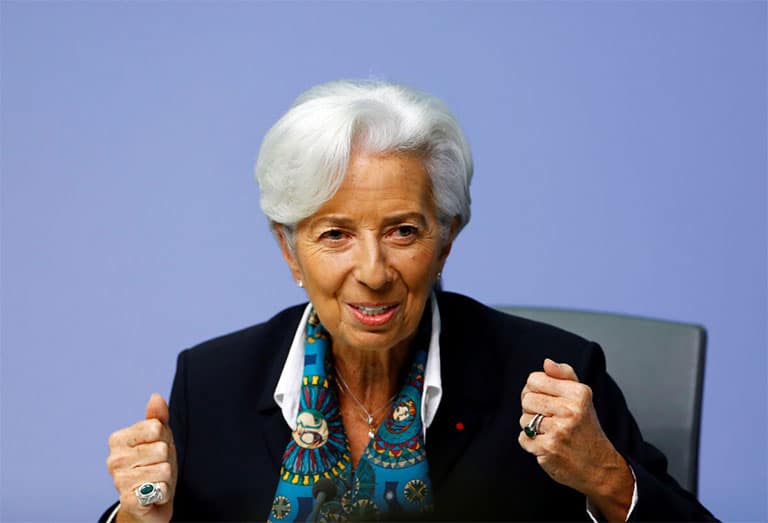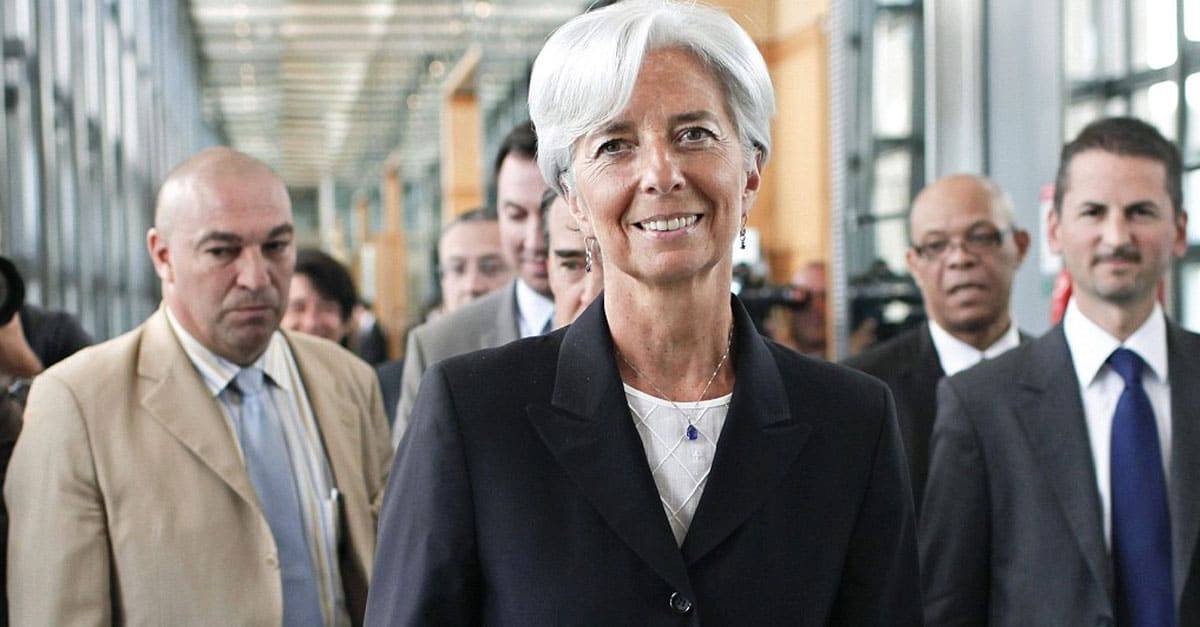Teamplayer with good contacts
A woman with style, reliable, and respected – for many, the Frenchwoman Christine Lagarde is considered a good choice for the head of the European Central Bank. It is highlighted as remarkable that former German Finance Minister Wolfgang Schäuble was in favour of her as ECB chief, even though he took a different position on the Greek bailout. Even US President Donald Trump showed her respect several times. Lagarde has shown many times that she has the necessary close contacts in politics and suitable qualities for this. Even in her youth as a synchronised swimmer, she was considered a team player, as the US fashion magazine “Vogue” wrote about her in a portrait in 2011. She is considered a woman who listens to advice and finds it easy to communicate. Now the 67-year-old Frenchwoman is president of the European Central Bank and guardian of the European currency area.

Professional career
Lagarde entered politics in 2005 and became Minister of Economy and Finance from 2007 to 2011, supporting France during the euro crisis. In 2011, she replaced the head of the International Monetary Fund (IMF) after Dominique Strauss-Kahn resigned over a sex scandal. She updated the Fund’s communications and course. Since then, the Fund has not abandoned strict rules that could cause social dislocation in affected countries. Women’s rights and inequality started to matter.
Furthermore, Lagarde was the first woman to become the finance minister in a G7 country and the first managing director of the International Monetary Fund (IMF). In 2013, Lagarde was awarded the title of Grand Officer of the National Order of the Republic of France.
She has held the position of President of the European Central Bank since November 2019. In addition, she is Chair of the European Systemic Risk Board (ESRB), a member of the Board of Directors of the Bank for International Settlements (BIS), and a member of the G 7 and G 20.
At the helm of the ECB
Lagard’s tenure began with the Corona pandemic, which posed a major challenge not only to European institutions and countries, but also to the global economy. Therefore, the focus of the ECB was particularly on crisis management and stabilising inflation. From this perspective, it could be seen that the more serious the crisis became, the higher the expectations were for the president of the ECB.
Elevate Your Wealth Game: Empowering UHNWIs for Simplified Asset Management. Altoo Platform Preview
Companions and outside observers, like international economist Elga Bartsch, give a largely positive but far from perfect report card. According to many, Lagarde has, however, been disappointing in terms of general expectations to make monetary policy more understandable to the general public.
Fans of Lagarde’s response to the economic crisis point to her run-in with Barclays Bank CEO Bob Diamond at the World Economic Forum in January as an example of her quick wit and sharp tongue. When he thanked finance ministers for making the economy better, Lagarde replied, “The best way for the banking sector to say thank you would be to actually have good financing of the economy, sensible compensation systems in place, and reinforcement of their capital.” Diamond was so shocked that he couldn’t say anything, and the audience cheered.
Despite all the turbulence and the many criticisms, mainly related to the increasing of interest rates of the euro, the roughly 340 million people in the Eurozone continue to have confidence in the common currency and the ECB. In a survey, almost 80 percent of respondents said they trusted the euro.
Lagarde once told a French news publication that “success is never complete. It’s an endless combat. Each morning one must put one’s capacities to the test once again”—and so she does.










